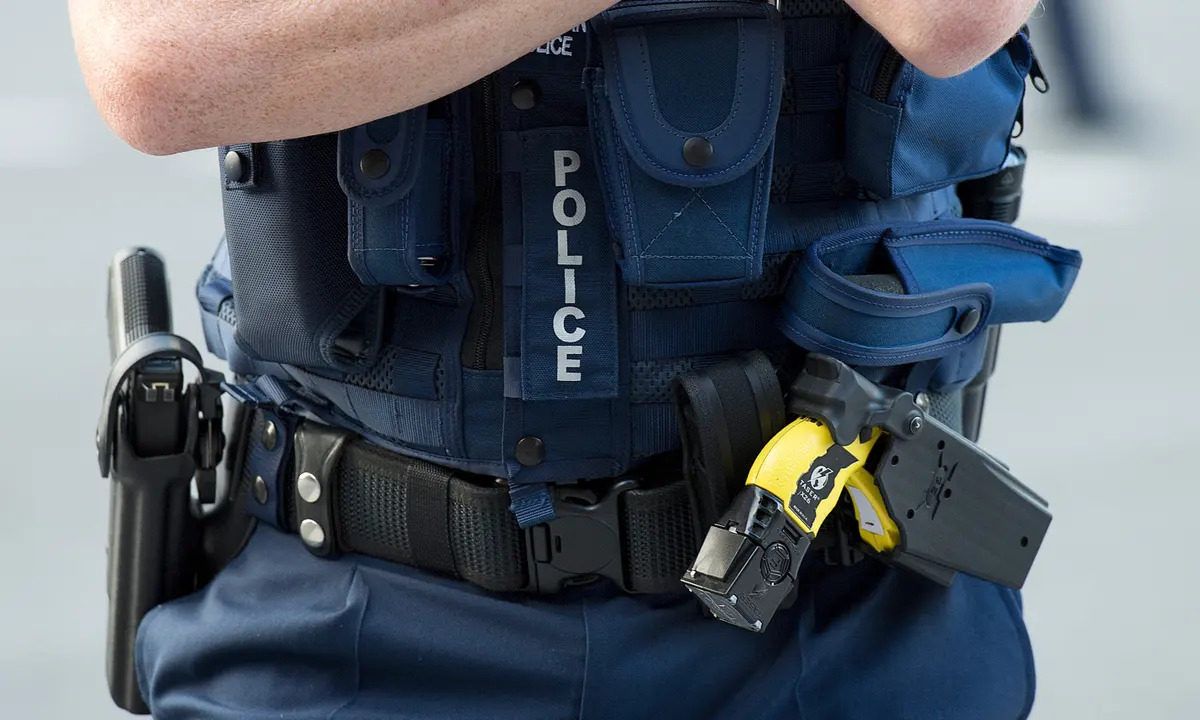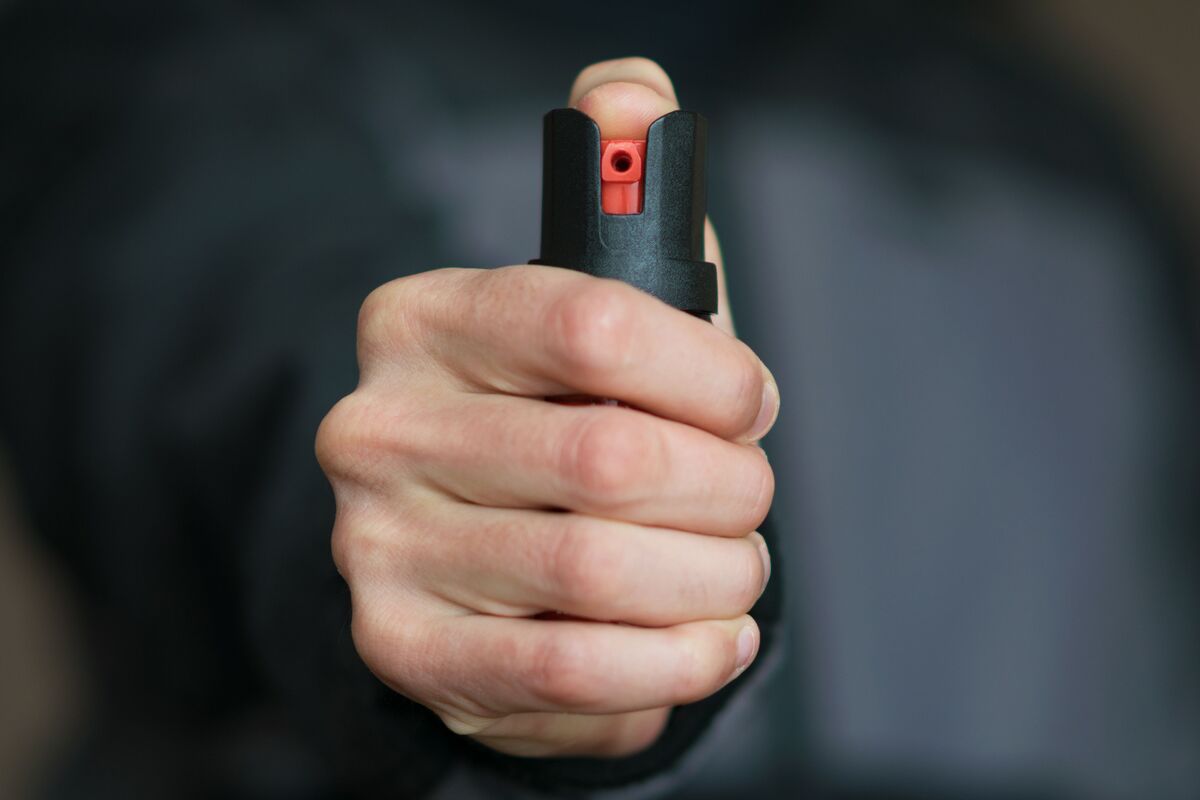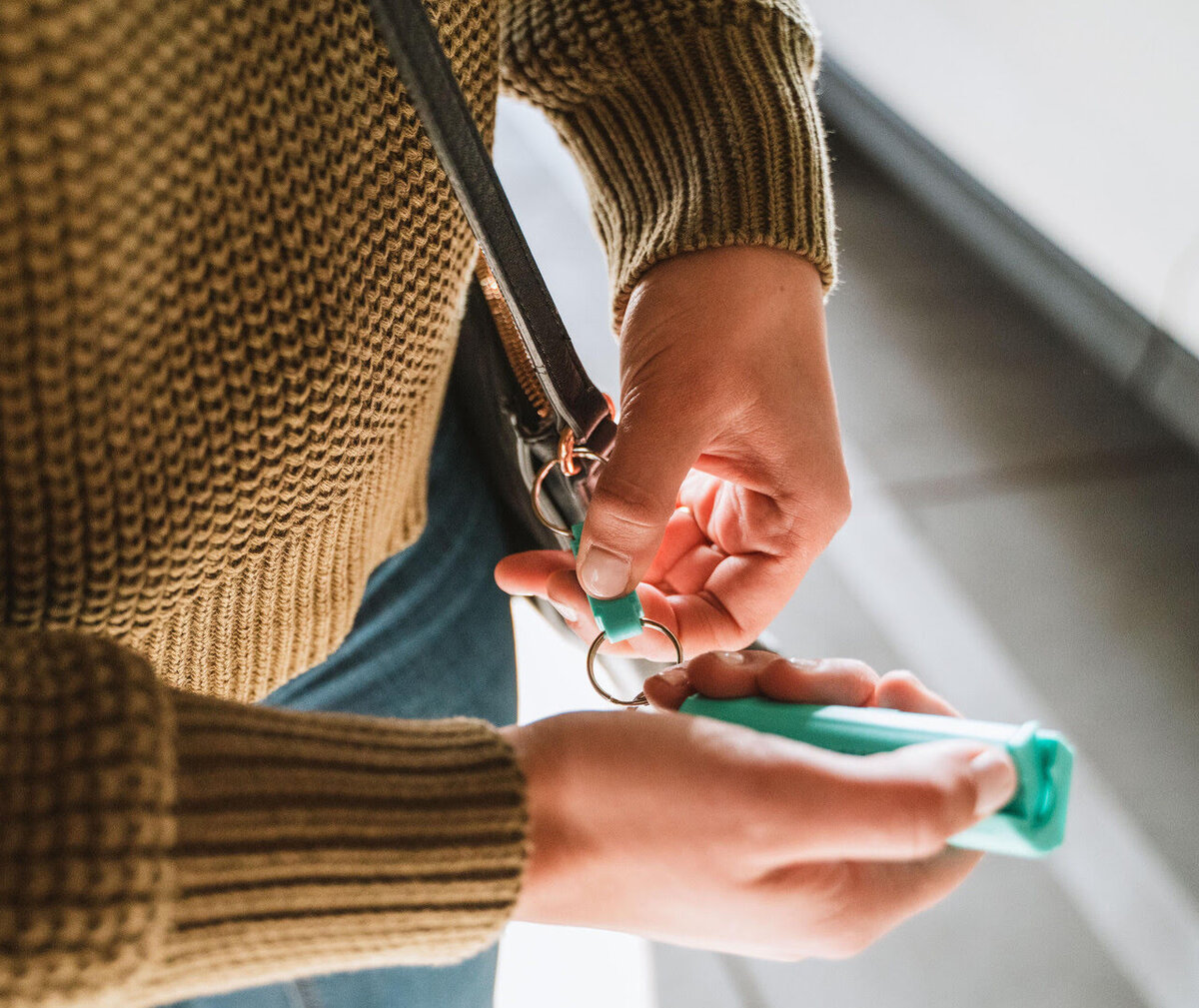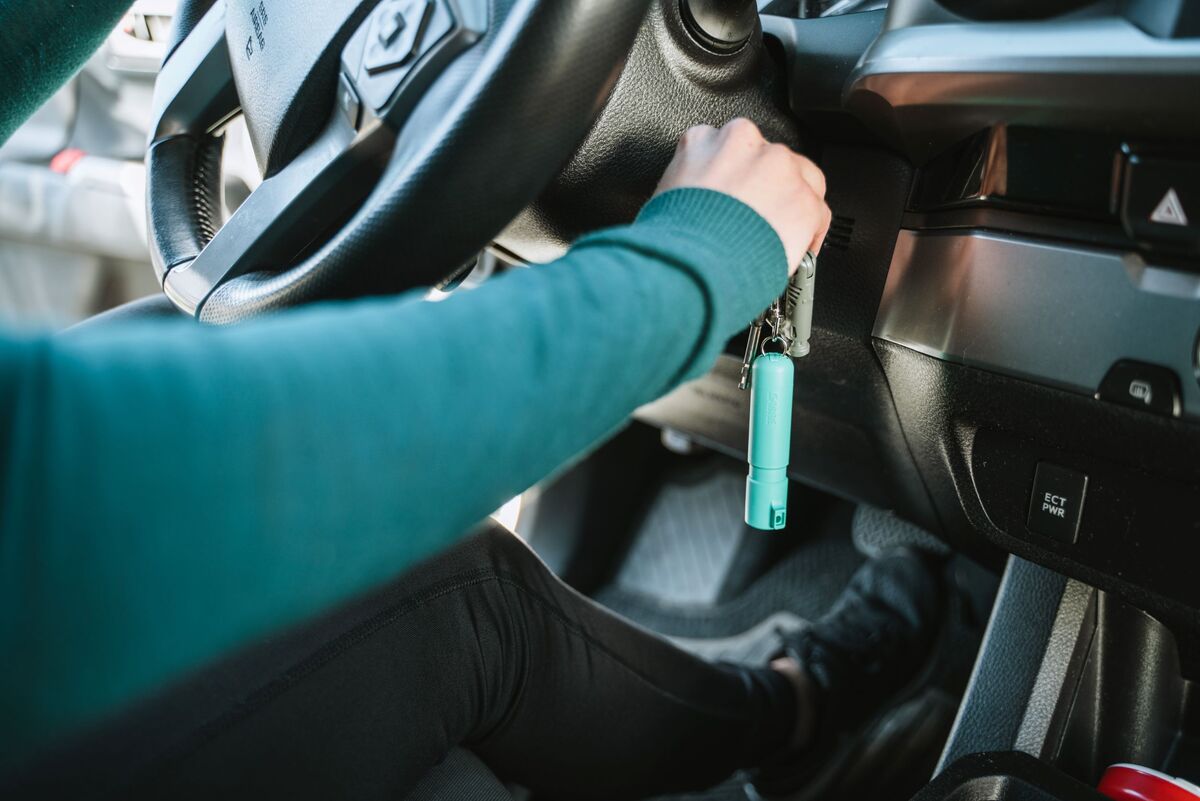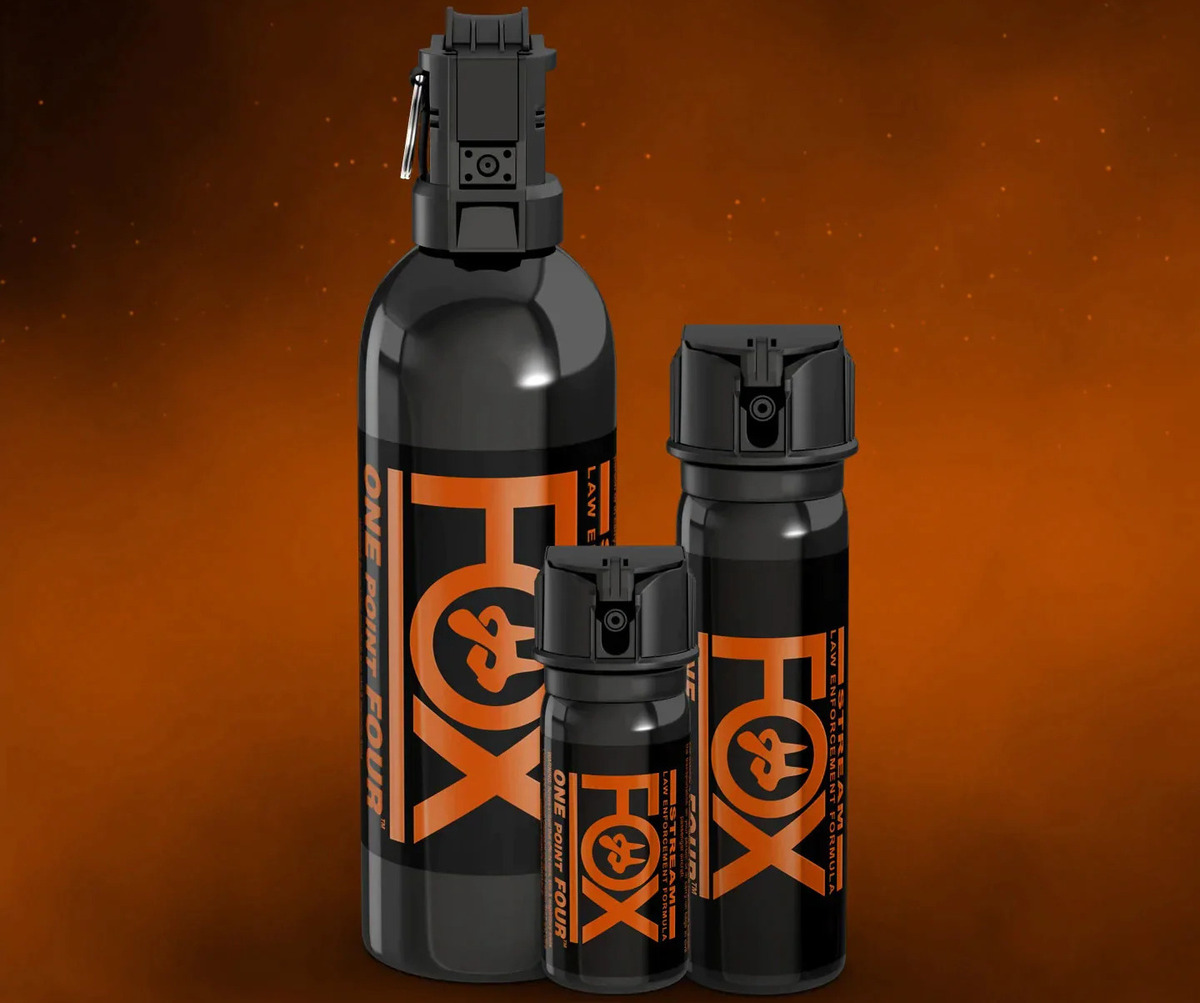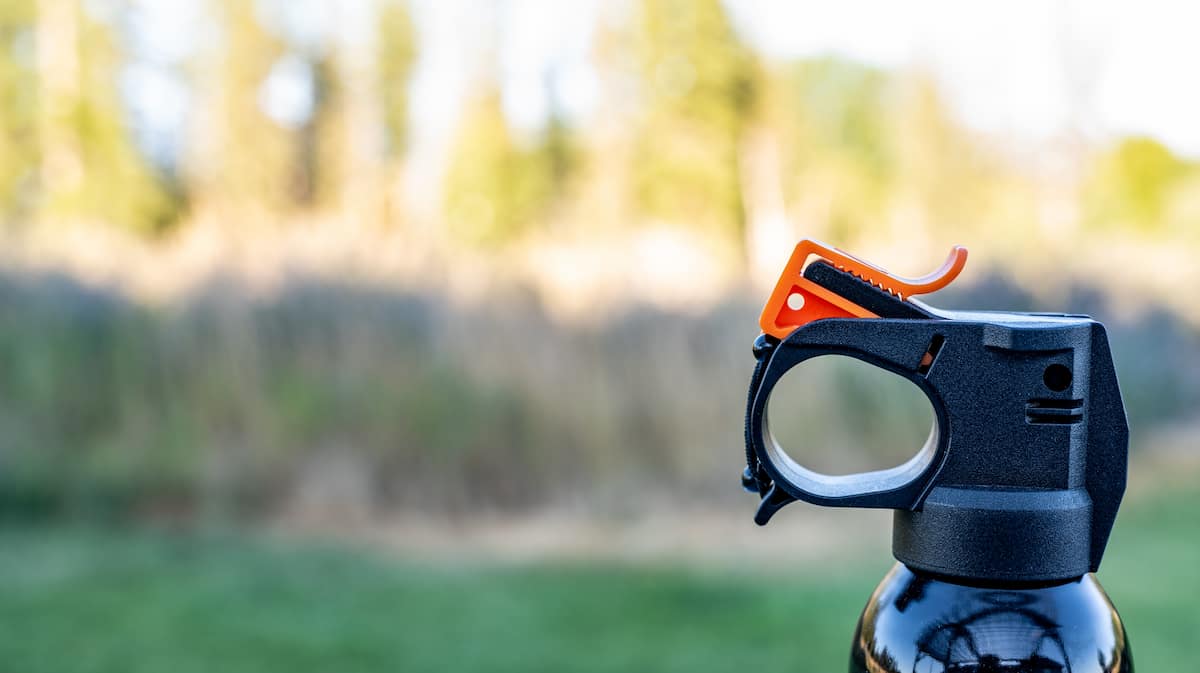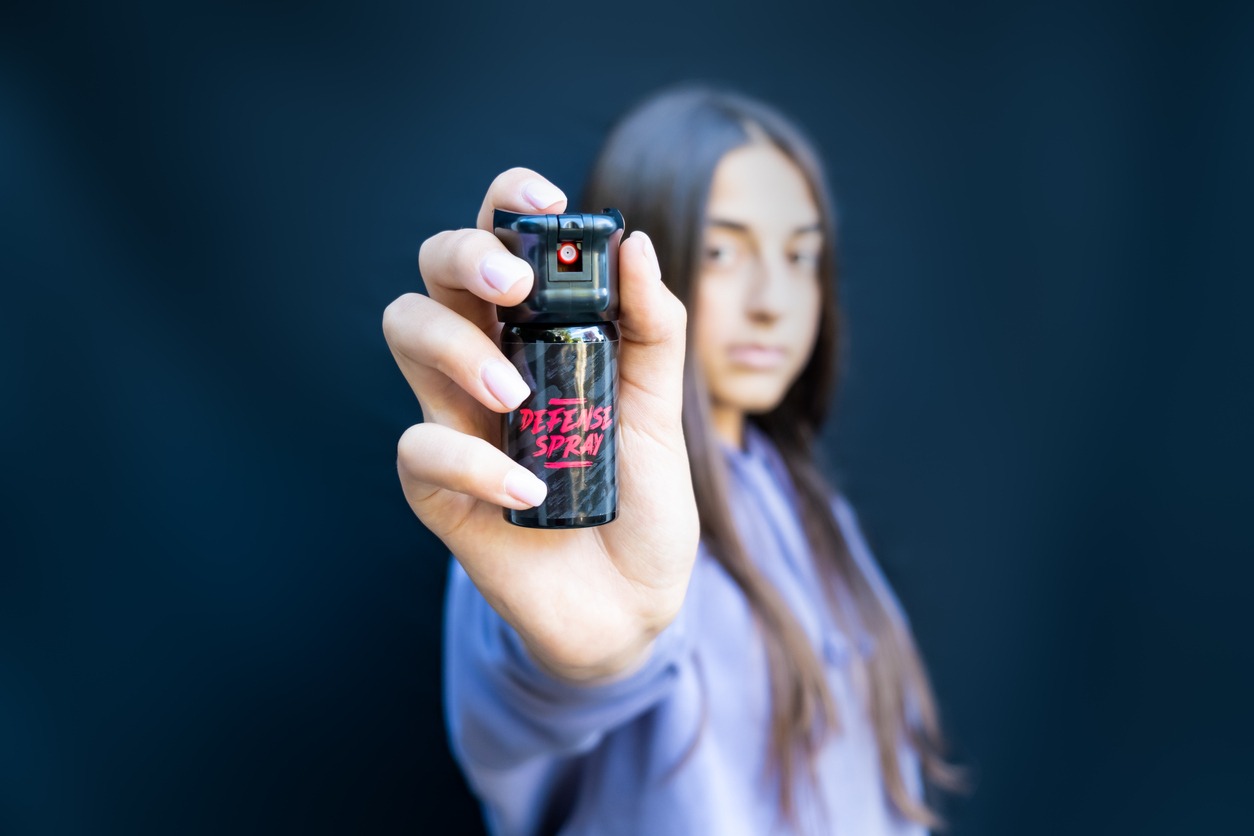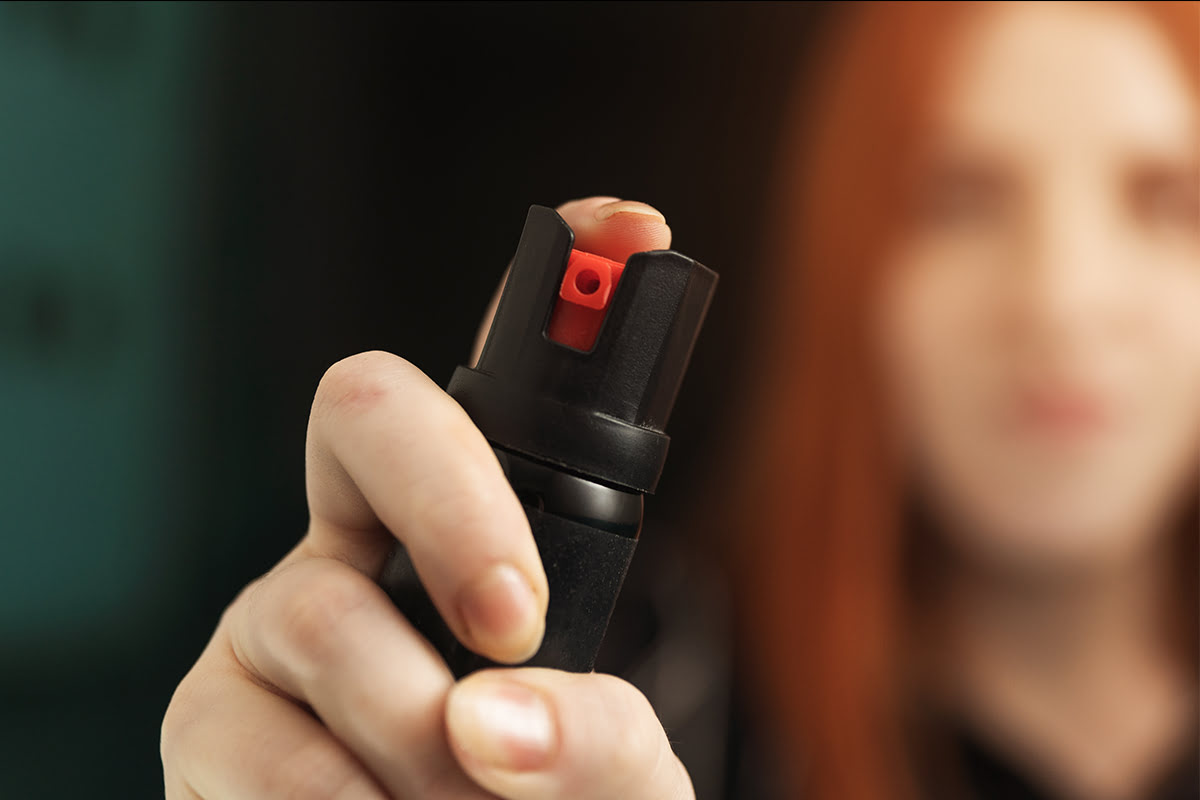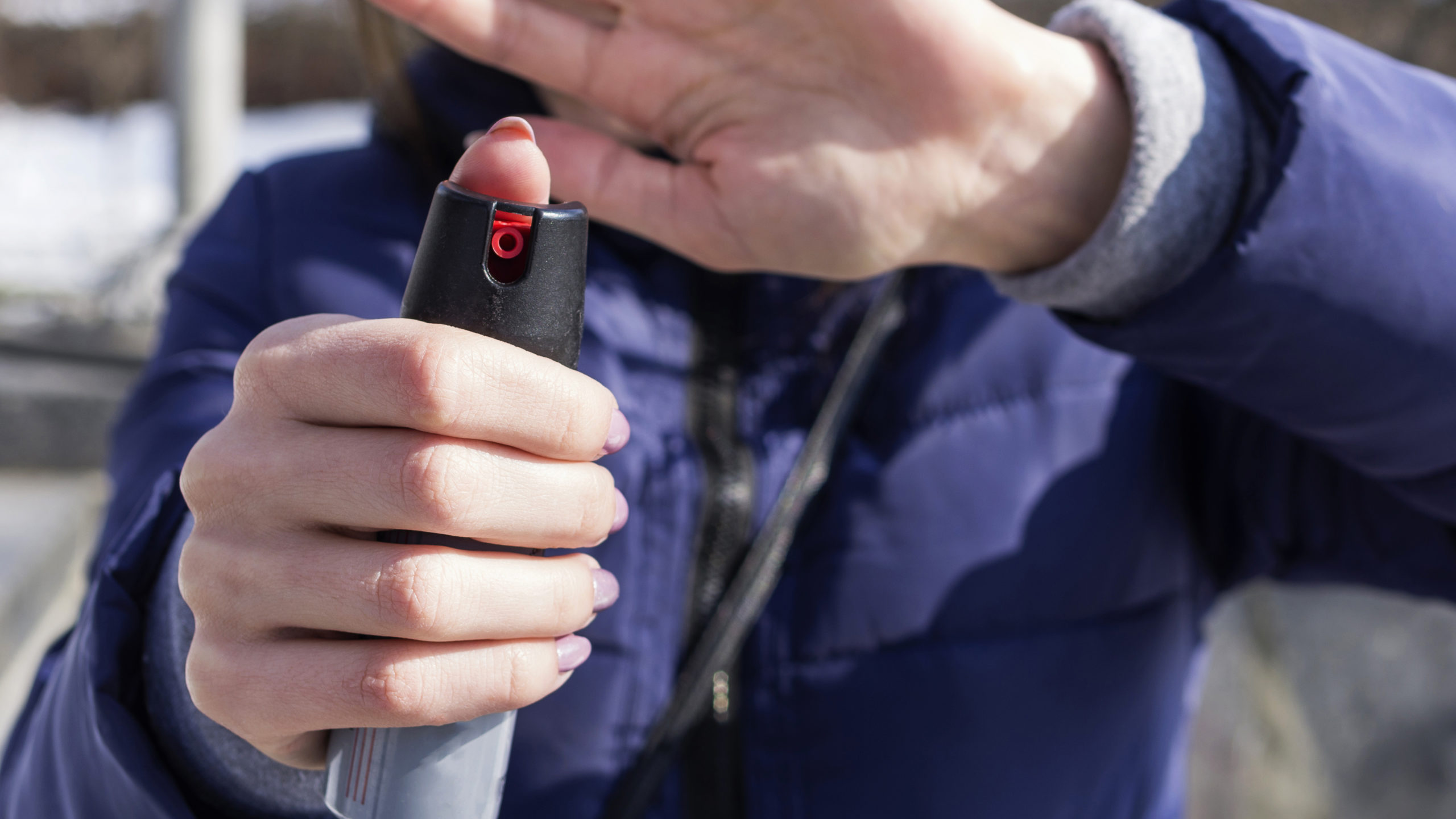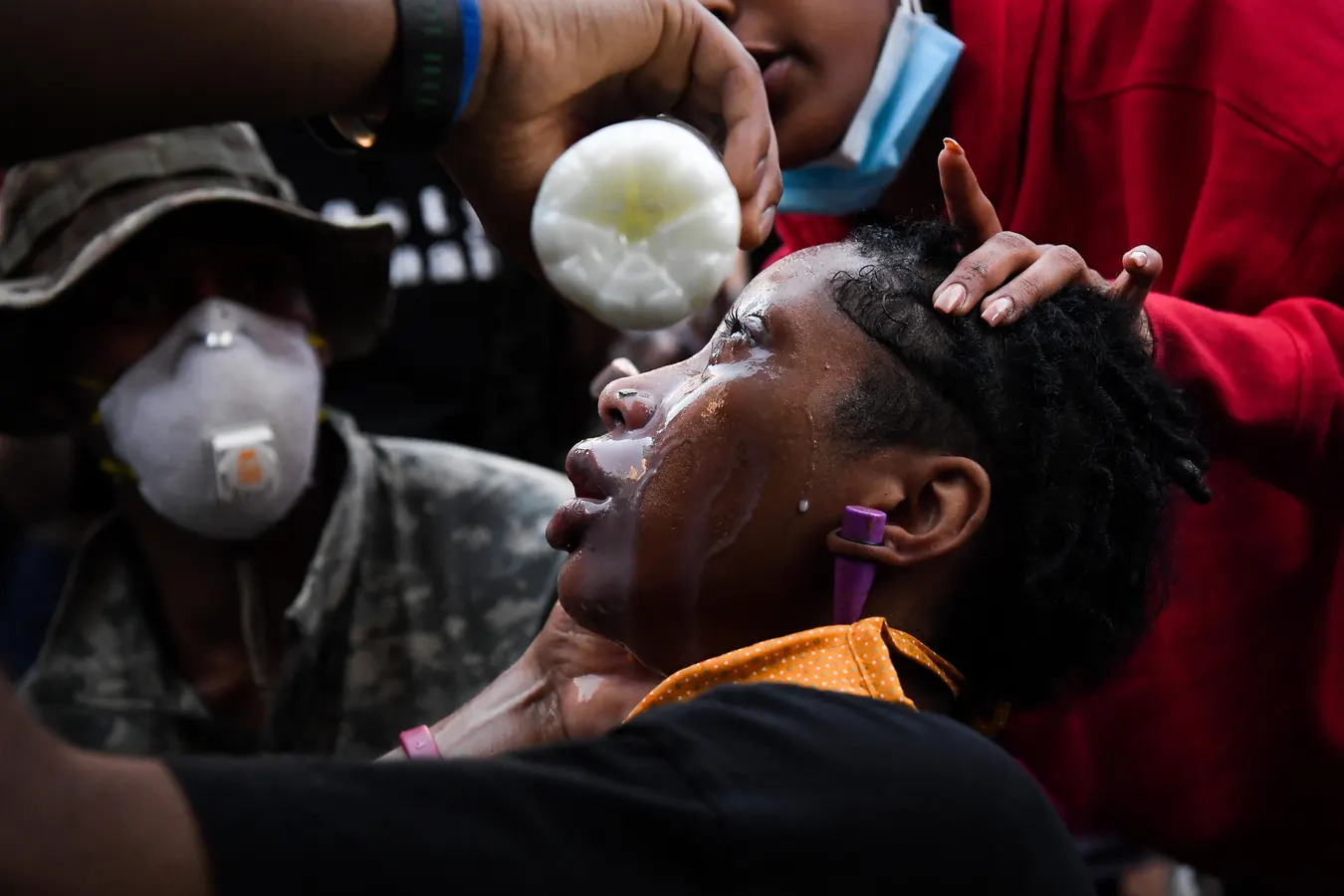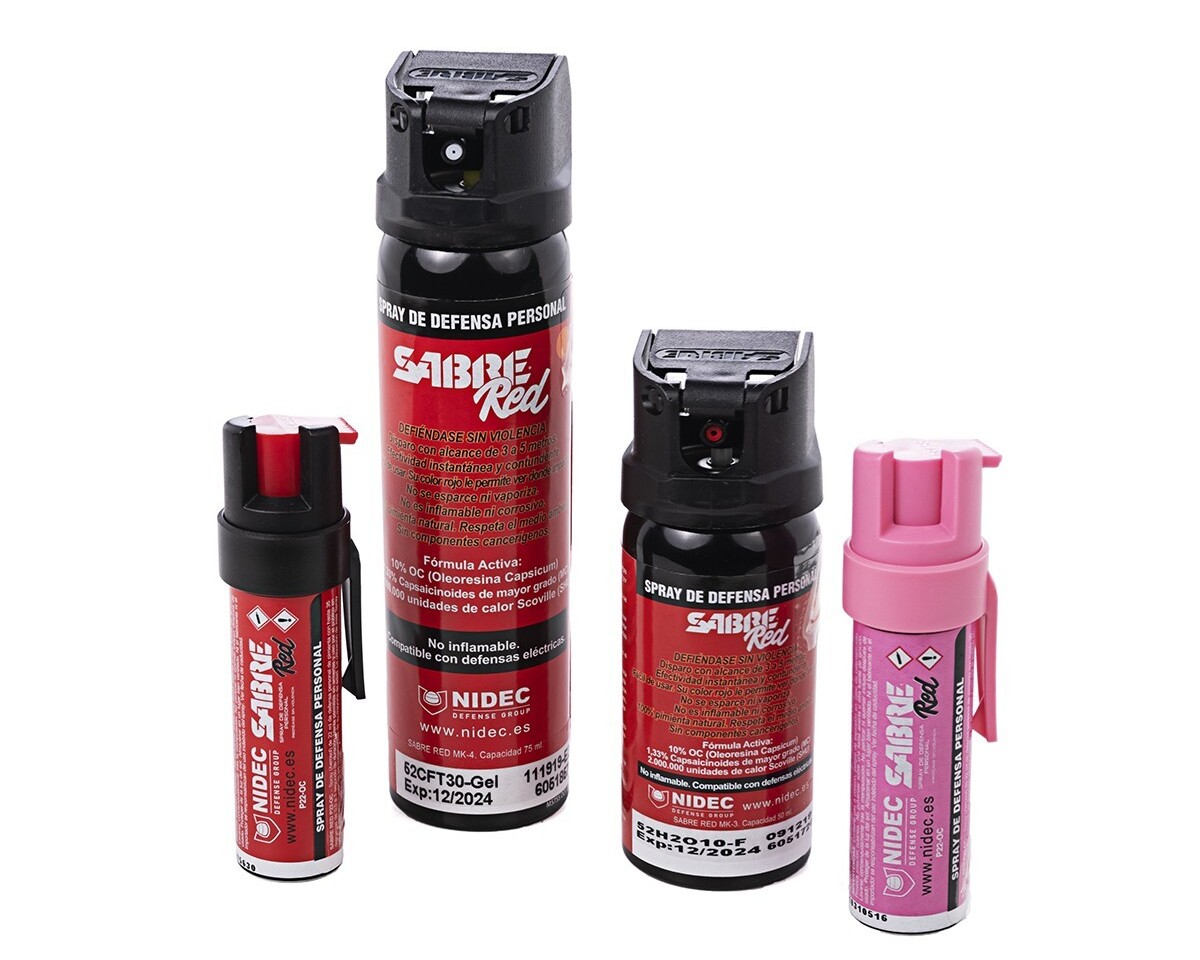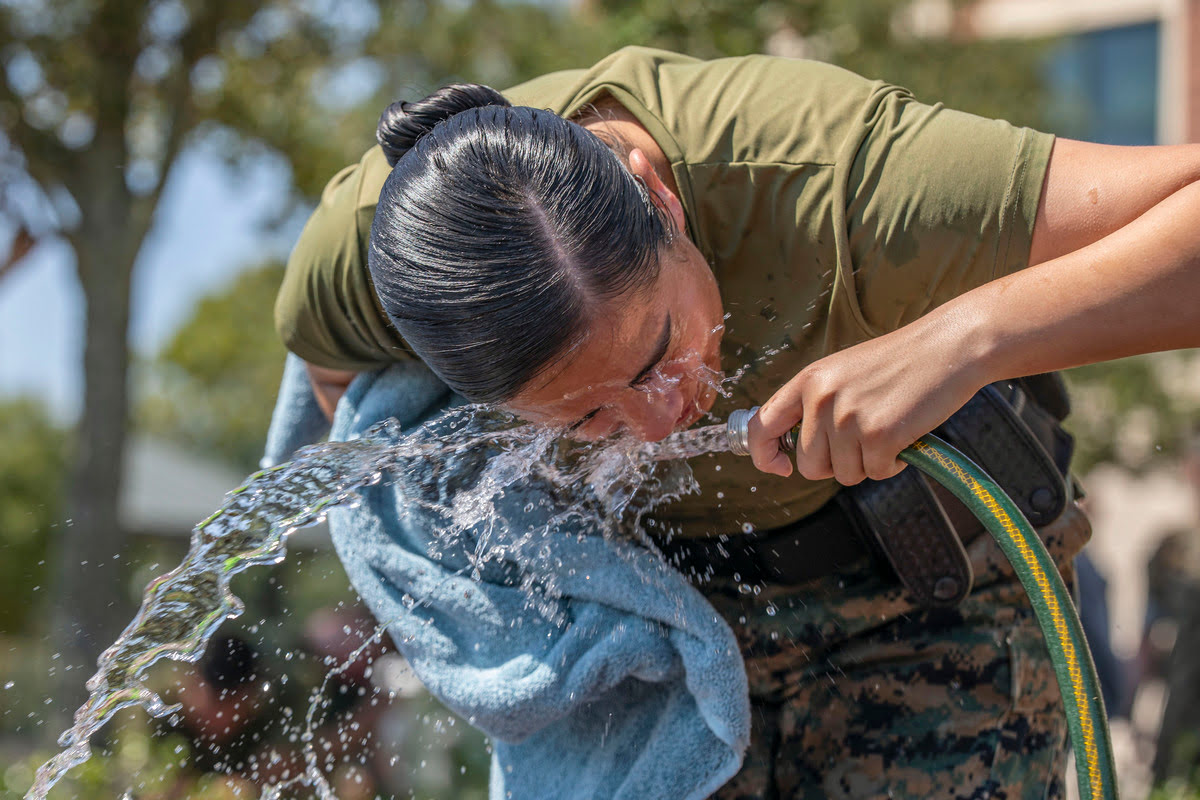Home>Home Security and Surveillance>What To Do For Pepper Spray In Eyes
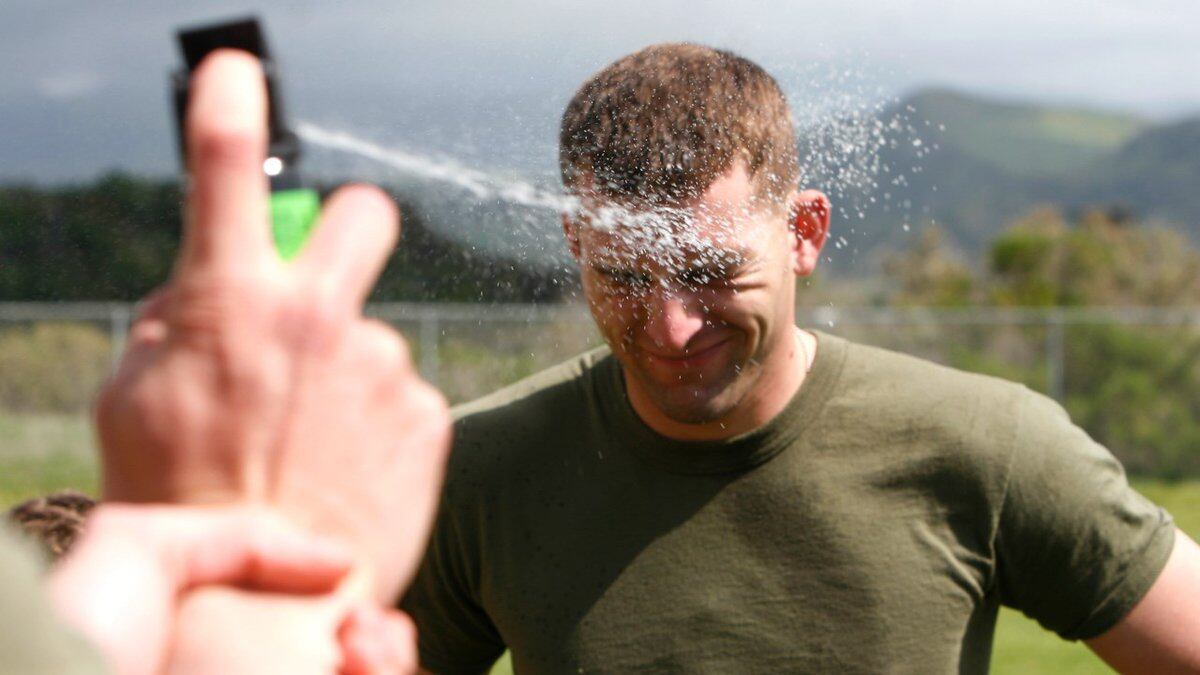

Home Security and Surveillance
What To Do For Pepper Spray In Eyes
Modified: March 6, 2024
Learn effective home security and surveillance techniques to protect your family. Discover what to do if pepper spray gets in your eyes.
(Many of the links in this article redirect to a specific reviewed product. Your purchase of these products through affiliate links helps to generate commission for Storables.com, at no extra cost. Learn more)
Introduction
Pepper spray, also known as OC spray (oleoresin capsicum), is a popular self-defense tool that can incapacitate an attacker. It is widely used by law enforcement agencies, security personnel, and individuals who want to ensure their personal safety. When used correctly, pepper spray can effectively neutralize threats. However, in some cases, accidental exposure to pepper spray can occur, causing discomfort and potentially harmful effects, especially when it comes in contact with the eyes.
In this article, we will explore the effects of pepper spray on the eyes and discuss the immediate steps that should be taken if you or someone you know experiences exposure. It is important to note that while this article provides general guidelines, it is always best to seek medical attention to ensure proper care.
Key Takeaways:
- If pepper spray gets in your eyes, stay calm, move to fresh air, and flush your eyes with clean water for at least 15-20 minutes. Seek medical attention for proper care.
- Avoid rubbing your eyes and using water or other irritants, as they can worsen the discomfort. After exposure, remove contaminated clothing, clean surfaces, and practice good hygiene for a faster recovery.
Read more: How To Get Pepper Spray Out Of Eyes
How Does Pepper Spray Affect the Eyes?
Pepper spray is composed of chemical compounds derived from chili peppers, which are known for their irritant properties. When pepper spray comes into contact with the eyes, it can cause immediate and intense discomfort. The main active ingredient in pepper spray, capsaicin, stimulates the nerve endings in the eyes, leading to a series of physiological reactions.
When capsaicin reaches the eyes, it causes the blood vessels to dilate, resulting in redness and inflammation. It also triggers an intense burning sensation, excessive tearing, and involuntary closure of the eyes. These effects can be overwhelming and may impair vision temporarily.
In addition to the immediate discomfort, pepper spray can cause secondary effects such as swelling of the eyelids and a sensation of constriction in the throat and chest. These effects are the body’s natural response to the irritant, and they help to protect against further harm.
Immediate Steps to Take
If you or someone you know has been exposed to pepper spray in the eyes, it is crucial to take quick action to alleviate the discomfort and minimize further harm. Here are the immediate steps you should take:
- Stay Calm: It is natural to panic when exposed to pepper spray, but try to remain calm and composed. Panicking may worsen the symptoms.
- Move to a Well-Ventilated Area: If possible, move to an area with fresh air to reduce the concentration of pepper spray particles in the vicinity. This will help alleviate the respiratory symptoms associated with exposure.
- Keep Eyes Open: It may be tempting to close your eyes tightly due to the intense burning sensation, but keeping your eyes open is crucial. This will aid in flushing out the irritants.
- Blink Repeatedly: Blinking rapidly can help flush out the pepper spray from the eyes. This action can also trigger tear production, which acts as a natural defense mechanism to flush out the irritants.
- Remove Contact Lenses: If you wear contact lenses, remove them immediately. The pepper spray may have adhered to the lenses, causing further irritation.
- Do Not Touch your Face: Avoid touching your face, especially the area around your eyes. This can prevent the spread of the irritants to other areas.
Remember, the effects of pepper spray on the eyes are temporary and will gradually subside. However, taking these immediate steps can help alleviate symptoms and speed up the recovery process. It is important to seek medical attention as soon as possible to ensure proper care and evaluation of the eyes.
Flushing the Eyes
One of the most crucial steps in treating pepper spray exposure is to flush the eyes. Flushing helps to remove the irritants and provides immediate relief. Here’s how to properly flush the eyes:
- Find a Source of Clean Water: Look for a source of clean, running water. This can be a sink, shower, or even a hose outdoors. Ensure that the water is at a comfortable temperature, neither too hot nor too cold.
- Tilt Your Head: Tilt your head forward slightly to prevent the pepper spray residue from running down into the unaffected eye.
- Use Both Hands: With clean hands, hold your upper eyelid open with one hand and use the other hand to cup the water.
- Flush the Eyes: Gently pour the water into your cupped hand and bring it up to your eye. Allow the water to flow over and around your eye while keeping the eye open.
- Continue Flushing: Continue to flush the affected eye for at least 15 to 20 minutes. Remember to blink frequently during the process to help wash away the irritants.
- Flush the Other Eye: Once you have flushed the affected eye for the recommended time, repeat the process to flush the other eye, even if it was not directly exposed to the pepper spray. This ensures any residual irritants are removed.
After flushing, pat your face dry with a clean towel. Avoid rubbing your eyes, as this can further irritate the sensitive tissues. If the burning sensation persists or worsens after flushing, seek medical attention immediately.
Flushing the eyes is an essential step in the initial treatment of pepper spray exposure. However, it is important to note that flushing alone may not completely alleviate the discomfort. Seeking medical attention is still recommended to ensure proper care and evaluation of the eyes.
Avoid Rubbing the Eyes
When exposed to pepper spray, the natural instinct is to rub or touch the affected areas, especially the eyes. However, rubbing the eyes can actually exacerbate the discomfort and increase the spread of the irritants. Here’s why you should avoid rubbing the eyes:
- Spread of Irritants: Rubbing the eyes can cause the pepper spray residue to spread to other parts of the face and potentially into the unaffected eye. This can prolong the duration of the burning sensation and may lead to further irritation.
- Potential Eye Damage: Rubbing the eyes forcefully can cause mechanical injury to the delicate tissues, including the cornea. The cornea is responsible for clear vision, and any damage to it can lead to long-term complications.
- Increase in Tear Production: Rubbing the eyes forcefully can stimulate increased tear production. While tears help to flush out the irritants, excessive tearing can make it difficult to keep the eyes open and hinder the flushing process.
If you feel the urge to rub your eyes, try using gentle pressure on the surrounding areas instead. This can help relieve some of the discomfort without spreading the irritants.
If you accidentally rubbed your eyes after exposure, immediately wash your hands thoroughly to remove any pepper spray residue. Avoid touching your face and eyes afterward to prevent further contamination.
Remember, it is crucial to seek medical attention after exposure to pepper spray to ensure proper evaluation and care for the eyes. A healthcare professional can assess any potential damage and provide appropriate treatment to promote healing.
Read more: What To Do When Sprayed With Pepper Spray
Removing Contaminated Clothing and Accessories
When exposed to pepper spray, it is important to remove any contaminated clothing and accessories as soon as possible. Pepper spray can adhere to fabrics and surfaces, prolonging the exposure and potentially causing further irritation. Follow these steps to properly remove contaminated clothing and accessories:
- Step Away from the Source: Move away from the area where the pepper spray was deployed to avoid any further exposure and contamination.
- Take Off Contaminated Clothing: Carefully remove any clothing that may have come into contact with the pepper spray. Avoid pulling the clothing over your head, as this can lead to the irritant spreading to your face and eyes.
- Handle Contaminated Items with Care: When removing contaminated clothing, be mindful of touching the exterior surfaces, as they may still contain pepper spray residue. Avoid touching your face or other sensitive areas until you have thoroughly washed your hands.
- Seal Contaminated Items: Place the contaminated clothing or accessories in a sealed plastic bag to prevent any residual pepper spray from contaminating other items or surfaces.
After removing the contaminated items, it is essential to wash your hands thoroughly with soap and water. Avoid touching your face or eyes until you have cleaned your hands to prevent further exposure.
Additionally, if pepper spray comes into contact with other surfaces, such as eyeglasses or jewelry, it is best to clean them promptly to remove any residue. Follow the manufacturer’s instructions for cleaning these items or consult a professional if needed.
Remember, prompt removal of contaminated clothing and accessories can help minimize the duration of exposure and reduce the risk of further irritation. Seeking medical attention after exposure is still highly recommended to ensure proper evaluation and care for the eyes.
If you get pepper spray in your eyes, immediately flush them with cold water for at least 15 minutes. Avoid rubbing your eyes, as this can spread the spray. Seek medical attention if the irritation persists.
Seek Medical Attention
After experiencing exposure to pepper spray, it is crucial to seek medical attention, even if the symptoms begin to subside. While most cases of pepper spray exposure can be managed at home, it is important to have a healthcare professional evaluate your condition to ensure proper care and rule out any potential complications. Here’s why seeking medical attention is essential:
- Evaluation of Eye Health: An ophthalmologist or an optometrist can assess the extent of any eye damage caused by the pepper spray. They can evaluate the cornea, conjunctiva, and other structures of the eye to ensure there are no long-term complications.
- Prescription Medication: In some cases, medical professionals may prescribe eye drops or ointments to soothe the irritation and promote healing. These medications can provide relief and reduce the risk of infection.
- Preventative Measures: A healthcare professional can provide guidance on how to prevent further irritation and reduce the risk of complications. They may recommend specific aftercare instructions or suggest additional treatments to aid in the recovery process.
- Monitoring for Potential Complications: While most cases of pepper spray exposure resolve without complications, there is a small risk of developing secondary infections or other eye conditions. Regular follow-up appointments with a healthcare professional can ensure any potential issues are caught and addressed early.
When seeking medical attention, inform the healthcare provider about the pepper spray exposure and any symptoms you are experiencing. They will be able to provide appropriate guidance and necessary treatment based on your individual circumstances. It is always best to err on the side of caution when it comes to the health and well-being of your eyes.
In the meantime, continue to follow the initial steps mentioned in this article, such as flushing the eyes and avoiding rubbing, until you can receive proper medical care.
Remember, the information provided in this article is for general guidance only and should not replace professional medical advice. Always consult with a healthcare professional for proper evaluation and treatment in cases of pepper spray exposure.
Do Not Use Water or Other Irritants
When it comes to treating pepper spray exposure, it is important to note that using water or other irritants is not recommended. While it may seem intuitive to wash away the pepper spray residue with water, this can actually worsen the symptoms and prolong the discomfort. Here’s why you should avoid using water or other irritants:
- Activation of Capsaicin: Pepper spray contains capsaicin, which is not water-soluble. When water is applied to the affected area, it can actually activate and spread the capsaicin, intensifying the burning sensation and causing further irritation.
- Spreading of Irritants: Water alone is not effective in removing pepper spray. Instead, it can cause the irritants to spread to other areas of the face and body, leading to a more widespread discomfort.
- Interaction with Chemicals: Certain substances, such as oils or alcohol-based cleansers, can react with the capsaicin in pepper spray, leading to a more severe and prolonged reaction. It is crucial to avoid using any irritants that may exacerbate the symptoms.
Instead of using water or other irritants, follow the steps mentioned earlier in this article, such as flushing the eyes with clean running water. Flushing helps to dilute and remove the irritants without activating or spreading them.
If you are unsure about the appropriate steps to take or need further guidance, it is best to consult with a healthcare professional. They can provide personalized advice based on your specific situation and ensure the proper care and treatment for pepper spray exposure.
Remember, the primary goal after exposure to pepper spray is to minimize the discomfort and promote healing. Using water or other irritants can hinder the recovery process and potentially cause more harm. Seek medical attention if needed and follow the guidance of healthcare professionals to ensure the best possible outcome.
Decontamination Tips
Decontamination is an important step in the aftermath of pepper spray exposure. Proper decontamination helps to remove any lingering residue and minimize the risk of further irritation. Here are some tips to effectively decontaminate after pepper spray exposure:
- Clothing and Accessories: Wash any clothing or accessories that may have come into contact with pepper spray separately from other items. Use a mild detergent and follow the care instructions provided by the manufacturer. This will help remove any residual pepper spray and prevent cross-contamination with other items.
- Cleaning Surfaces: If pepper spray has come into contact with surfaces in your home or car, it is important to clean them as well. Use a gentle cleanser and a clean cloth to wipe down the affected areas. Be sure to ventilate the area by opening windows or using fans to dissipate any lingering fumes.
- Personal Items: Clean personal items, such as eyeglasses, cell phones, or keys, that may have been contaminated with pepper spray. Use a mild cleanser and a soft cloth to wipe these items thoroughly, ensuring any residue is removed.
- Proper Disposal: If you have used disposable wipes, tissues, or other items during decontamination, make sure to dispose of them properly. Seal them in a plastic bag and discard them in a trash bin.
- Wash Hands: After completing the decontamination process, wash your hands thoroughly with soap and water. This will remove any residual pepper spray and prevent accidental transfer to other areas of your body or face.
It is important to note that the severity of pepper spray exposure can vary from person to person. If you are unsure about the appropriate decontamination procedures or have concerns about lingering effects, it is best to consult with a healthcare professional. They can provide personalized advice based on your specific situation.
Lastly, remember that decontamination is just one part of the recovery process. Seeking medical attention for proper evaluation and care is still crucial, especially if symptoms persist or worsen after decontamination. A healthcare professional can assess the extent of the exposure and provide appropriate treatment.
By following these decontamination tips, you can effectively minimize the lingering effects of pepper spray exposure and help promote a faster recovery.
Recovery and Aftercare
After experiencing pepper spray exposure, proper recovery and aftercare are essential to ensure the healing process and minimize any lingering effects. Here are some important steps to consider:
- Time and Patience: The effects of pepper spray exposure typically subside over time. Be patient and allow your body to naturally recover. It may take several hours or even days for the symptoms to fully resolve.
- Use Lubricating Eye Drops: If you are experiencing persistent dryness or discomfort in your eyes, lubricating eye drops can provide relief. These drops can help alleviate dryness and promote a soothing sensation. Choose preservative-free drops specifically designed for dry eyes.
- Avoid further Irritants: It is important to avoid activities or environments that may exacerbate the symptoms or irritate the eyes. This includes avoiding excessive exposure to smoke, dust, wind, or other potential irritants.
- Protect Your Eyes: While your eyes are recovering, consider wearing protective eyewear, such as sunglasses or safety glasses, when outdoors. This can help shield your eyes from external irritants and minimize any potential discomfort.
- Practice Good Hygiene: Wash your hands frequently with soap and water to prevent any further contamination or irritation. Avoid touching or rubbing your eyes, as this can prolong the healing process.
- Follow Medical Advice: If you have sought medical attention, make sure to follow the advice and treatment plan provided by the healthcare professional. This may include the use of prescribed medications, follow-up appointments, or additional instructions tailored to your specific needs.
- Monitor for Complications: While most cases of pepper spray exposure resolve without complications, it is important to monitor your symptoms. If you experience severe or worsening pain, vision changes, or any other concerning symptoms, seek immediate medical attention.
Every individual may have a different recovery timeline and experience varying degrees of discomfort. If you have any concerns or questions during the recovery process, do not hesitate to reach out to a healthcare professional for guidance and support.
Remember, proper recovery and aftercare play a crucial role in minimizing the lasting effects of pepper spray exposure and restoring your overall eye health. Stay vigilant, practice good hygiene, and prioritize your well-being during the recovery period.
Conclusion
Pepper spray exposure can be an uncomfortable and distressing experience, particularly when it affects the eyes. The immediate steps of staying calm, moving to a well-ventilated area, and flushing the eyes are crucial in mitigating the discomfort. However, it is important to remember that these steps alone may not fully alleviate the symptoms, and seeking medical attention is strongly recommended.
Medical professionals can provide a thorough evaluation of your eye health, offer appropriate treatment and medication, and monitor for any potential complications. They can guide you through the recovery process and provide personalized recommendations to ensure optimal healing.
Additionally, taking proper decontamination measures, such as removing contaminated clothing and accessories, cleaning surfaces, and washing hands, can help minimize the risk of further irritation and facilitate a faster recovery.
Throughout the recovery and aftercare process, it is important to remember to avoid rubbing the eyes, using water or other irritants, and exposing the eyes to potential irritants. Practicing good hygiene, protecting the eyes, and following medical advice are also crucial in promoting healing and minimizing any lingering effects.
Ultimately, the recovery from pepper spray exposure may take time, but with patience, appropriate care, and medical guidance, the discomfort will gradually subside, and your eye health will be restored.
Remember, the information provided in this article is meant to offer general guidance and should not replace professional medical advice. If you have experienced pepper spray exposure, it is always best to consult with a healthcare professional for proper evaluation and treatment based on your individual circumstances.
Frequently Asked Questions about What To Do For Pepper Spray In Eyes
Was this page helpful?
At Storables.com, we guarantee accurate and reliable information. Our content, validated by Expert Board Contributors, is crafted following stringent Editorial Policies. We're committed to providing you with well-researched, expert-backed insights for all your informational needs.

